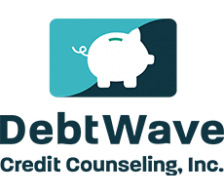Establishing boundaries between your personal finances and your business finances is important for any entrepreneur. While you may have invested a portion of your personal finances to start your business, it is important to keep your finances separate now that your business is in full operation. Create financial boundaries at the start of your business so that you can easily track your spending and keep both your personal and business finances sustainable.
Business vs Personal Credit (How to Keep Them Separate)
Open a Separate Bank Account
Funneling your personal money and your business revenue into the same bank account can make it difficult to distinguish your funds and accurately track your spending. Instead, open an entirely separate bank account that is dedicated to your business expenses and revenue. Use your business account strictly when making business-related purchases and leave your personal finances aside. Open your business account with a different bank than the one in which you manage your personal finances. This will help balance your finances and will also make your business look more legitimate.
Establish an Employer Identification Number
As the sole proprietor of your business, it may be easy to operate through the use of your personal Social Security number, but it is best to create an Employer Identification Number (EIN). Having an EIN early on will distinguish your finances from that of your business and will actually allow you to make purchases as a business at a better rate. With a simple online application, you can create your EIN and officially have a business ID.
Invest in an Accountant and Bookkeeping Software
If you are managing the operations of your company and overseeing the finances, it can certainly be hard to keep things in line. Instead of juggling many hats, leave the financial management to the professionals. Hire an accountant who is well versed in finance and can properly monitor your budget. Utilizing accounting software, take Bench for example, can also make financial management seamless and ensure your personal budget does not mix with that of your business. By tracking where your money is going and coming from, you can better plan for your business.
Open Separate Online Payment Accounts
In addition to having separate bank accounts, it’s important to separate all personal and business spending, including online. Create a business account and an account for your personal use for websites like PayPal or Amazon that could be easily be used interchangeably so that you don’t overlap payments. Keep your business accounts linked to your business checking account and credit card – and vice versa for your personal spending – so that you are only buying business purchases with the right payment. If you do need to use your personal finances for a business expense, be sure to immediately reimburse yourself, just as you would a regular employee.
Avoid Mixing Business with Personal Payments
If your business is relatively new and opening up a second bank account isn’t yet feasible, you can still keep distance between your personal and business finances. Use cash for all your personal payments, that way your business expenses can solely be tied to your checking account and be easily tracked. If you are already in a position to have two bank accounts, take the next step and distinguish any of your credit cards from credit cards that will be used for your business. Doing so will make it easier to keep your expenses paid from the right account. If you’re struggling to manage your business credit, it may be best to avoid this form of payment.
Monitor Your Budget
Setting a personal budget for your individual finances is helpful for making sustainable spending decisions but setting a budget for your business is absolutely crucial. Creating a solid business budget – and spending within your allotted amount – will keep your personal finance from being drawn in to support your business. On the flipside, following your personal budget and not utilizing money that is directed for your business will keep your company afloat and avoid any risky business habits.
Treat Yourself Like an Employee
As the owner of your small business, it can be all too easy to pour extra time and money into your gig. Paying yourself regularly as an employee, though, can help create structure and develop a clear boundary between your personal and business finances. Having a set, regular pay schedule will help keep you from giving extra of your personal finances and will help keep your business operating successfully. Paying yourself as an employee also avoids the issue of dipping in to your business profits.
As a small business owner, a large part of your identity is tied to your organization, but your finances should not be. The sooner you can create space between your personal and business finances, the easier it will be to properly track each budget and move your business forward. Using your personal money to get your business started is common, but once you get your feet off your ground you should distance your finances.
What strategies do you deploy to ensure your personal and business finances are separate? Tell us in the comments below!



[…] a stark demarcation between personal and business finances is non-negotiable. This separation simplifies accounting, aids in budgeting, and fosters […]